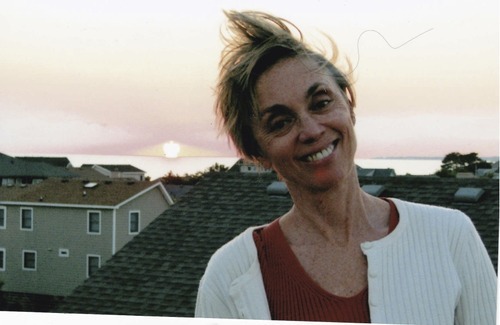
When I met my partner, Gene, twenty-four years ago, he was an experienced canoeist, and he loved paddling every summer. So I figured I’d better learn fast. One memorable incident was during a trip to Quetico Provincial Park across the Minnesota border in Canada. It was there that I added a chapter to my “Life Lessons” journal.
Gene and I always went canoeing with his friend, Stewart and his wife, Joan. I didn’t like Joan from the beginning. She talked non-stop, endlessly showing off how much she knew about everything. And worst of all, because I can’t even boil a carrot, she was a gourmet cook.
So the two weeks of wilderness paddling and camping were a challenge for me. At the end of one day, we scouted around for a stellar camping site and I showed Joan the one we had found.
“This island sucks,” she sniffed, “Stew and I’ll stay on that one over there,” she informed us, pointing to another one across an inlet.
“Okay,” I chirped. “See you tomorrow.”
I was awakened in the morning by the smell of smoke in the air.
“Gene, get up!” I screamed, looking across the water. “There’s a fire on Stew and Joan’s island!”
We piled into our canoe and raced across the inlet to find them frantically trying to remove the underbrush from the flames. Soon we heard the Canadian Forest Service arriving by helicopter to douse the area. It took twenty-six hours, but they finally extinguished the fire.
Joan had neglected to stamp out her cigarette while she was shitting in the woods, and, well, shit happens.
She was inconsolable. She loved nature and couldn’t bear to see the results of her carelessness.
The Canadians sent a crew of four, two Ojibwa Indians, the ax man and the pump man, an assistant chief and a chief, both White. The cost of the manpower and equipment could have exceeded $12,000 if they hadn’t called off the aerial bomber. It was a particularly dry season that summer in Canada, but they didn’t fine us. We were lucky.
Joan and I had pushed each others’ buttons plenty before that incident. But our esteem for one another began then. I suppose the dark side of our natures enjoys it when our adversaries falter. And I’m no different. But somehow that smug inner smile turned the mirror back onto me, and I didn’t like what I saw.
“Joan Joan, come on,” I insisted, offering her a hug and a shoulder to cry on. “It could easily have been me. I smoke too. Please, don’t be so hard on yourself. It was just a terrible accident.”
She and I hold each other in very high esteem now. This brief confrontation with my darker side opened my heart to appreciating Joan’s good qualities. Maybe it also reminded me how human we all are and how important it is to lift each other up as we pass through life.
Beats bitchin.’






